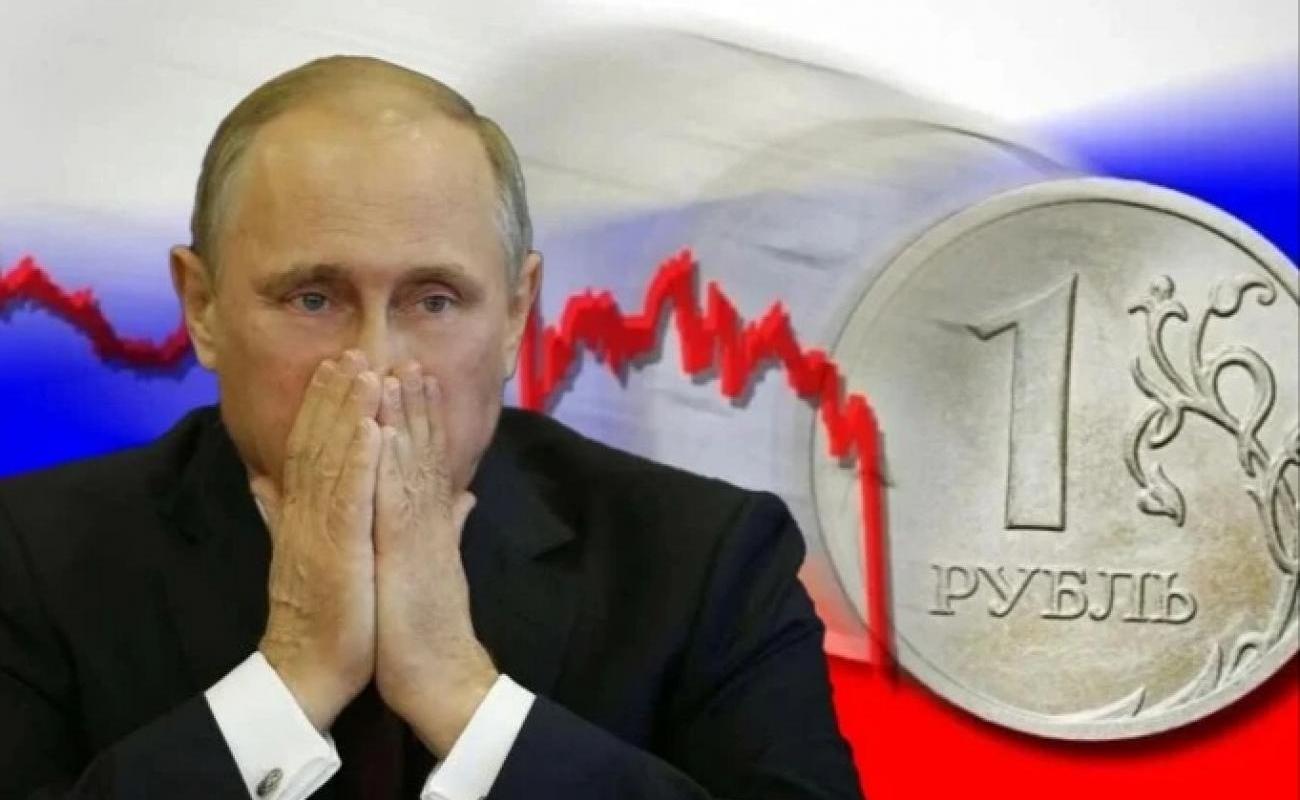Does the Kremlin acknowledge that sanctions against the Russian Federation are effective?

The United States has shifted its focus to smaller banks in some countries after major lenders in China, Turkey, and the United Arab Emirates withdrew from Russian partners.
Information on the current losses of the Russian Federation as a result of sanctions:
1.Russia’s wealthiest oil company, Surgutneftegaz, has become unprofitable and has not disclosed all financial indicators. The Russian oil company Surgutneftegaz, the fourth-largest oil producer and the largest cash bank, has decided not to publish the vast majority of its financial data. "Surgutneftegaz" does not disclose revenue, cost of sales, commercial and administrative expenses, or income from "affiliated" enterprises. Long-term and short-term loans, assets, cash reserves, and even approved capital have been targeted secretly. Surgutneftegaz has only reported profit figures: the company's net profit for the first half of the year fell sixfold to 139.9 billion rubles, and its profit before tax amounted to 168.7 billion rubles, also reduced sixfold. According to the report, Surgutneftegaz suffered a loss of 129.9 billion rubles in the second quarter, but the displayed figures do not clarify which factors contributed to this loss.
2. The performance of Russian metal giant Nornickel is declining.
EBITDA (an analytical indicator equal to the amount of profit before interest, taxes, depreciation, and amortization expenses are deducted) for Nornickel decreased by 30% in the first half of the year compared to the previous year. The EBITDA margin fell to 42% from 47% a year earlier. Consolidated revenue amounted to $5.6 billion, which is 22% less than the same period last year. Free cash flow dropped by 61% to $525 million, while cash flow adjusted for interest payments on debt instruments and leases was negative $159 million. Net debt increased by 24% to $10.1 billion since the end of 2023.
3. The U.S. has imposed sanctions on 400 individuals and entities from the Russian Federation – U.S. Department of the Treasury.
The son of the Russian Defense Minister, Pavel Belousov, has come under new U.S. sanctions. In addition, the following have been sanctioned: Evraz KGZK, Evraz NTMK, Evraz ZSMK, Evraz Vanadium Tula, as well as the Russian cargo airline Air Bridge Cargo.
In addition to Russian companies, 46 Chinese companies and one Chinese citizen have been added to the U.S. sanctions list.
4. The U.S. has imposed sanctions on seven ships from the "shadow fleet" associated with Russian LNG.
The U.S. has imposed sanctions on seven liquefied natural gas (LNG) carriers linked to Russia, including ships believed to be loading at the latest export facility in the Arctic region. Pioneer and Asya Energy were among the LNG vessels that loaded the first two batches from the previously approved Arctic LNG 2 project, according to a list released by the U.S. Department of the Treasury.
The latest move highlights how quickly the U.S. is prepared to act: Arctic LNG 2 loaded its first suspected cargo less than a month ago. The sanctions represent a new blow to Russia, which has spent months developing what is believed to be a "shadow fleet" of LNG tankers, similar to what it has done for crude oil and product transportation.
Such vessels have opaque ownership, unknown insurers, and use methods such as concealing their location by disabling or manipulating automatic identification systems.
The sanctions also affected other companies involved in maritime and technology sectors, including Indian-owned Ocean Speedstar Solutions and Dubai-based White Fox Ship Management, which are connected to the recently sanctioned vessels.
5. The U.S. has warned that countries trading with Russia risk facing secondary sanctions if they allow Russian banks to open branches to finance the procurement of goods for the Russian military machine.
According to U.S. Deputy Secretary of the Treasury Wally Adeyemo, this step aims to prevent Russia from circumventing sanctions, which has found ways to pay for dual-use goods needed for weapon production.
“We will not only monitor the branches being opened but also other organizations and companies in your jurisdiction that are working with them. This is not just a warning against dealing with subsidiaries or branches of sanctioned entities,” said Adeyemo.
The executive order issued by the White House in December 2023 warns foreign financial institutions of the risk of secondary sanctions if they engage in or facilitate transactions related to the Russian military-industrial complex.
According to Adeyemo, the U.S. has shifted its focus to smaller banks in some countries after major lenders in China, Turkey, and the UAE withdrew from cooperating with Russian partners.
6. Kazakhstan's RBK Bank has announced that it will intensify control over transactions related to the Russian Federation.
When processing incoming and outgoing payments and even transfers related to Russia and Belarus, the bank reserves the right to temporarily halt the transaction. The bank has also warned clients about the potential for payment blockages and/or the registration of contracts with individuals from Crimea, Iran, North Korea, Myanmar, Algeria, Afghanistan, and 30 other countries.
7. The Czech Parliament has called on the government to investigate possible involvement of local Orthodox churches in Russian information operations.
The Russian Orthodox Church in the Czech Republic is an extension of the Moscow Patriarchate, closely linked with the Russian state, led by Patriarch Kirill, whom the Czech government has sanctioned for his public support of Russia's war in Ukraine.
Earlier, in August, Czech authorities also expelled Russian Orthodox priest Nikolai Lishchenko, accusing him of creating influence structures to support Russian interests in the EU.
The Security Committee in the Czech Senate has recommended that the intelligence services and the Ministry of Culture investigate this threat. It is specifically noted that the Russian Orthodox Church and the nominally independent Orthodox Church in the Czech Republic could face deregistration if it is confirmed they are violating the law.
"Freedom of religion and association cannot be abused for illegal influence by a hostile foreign state," said Committee Chairman Pavel Fischer.
